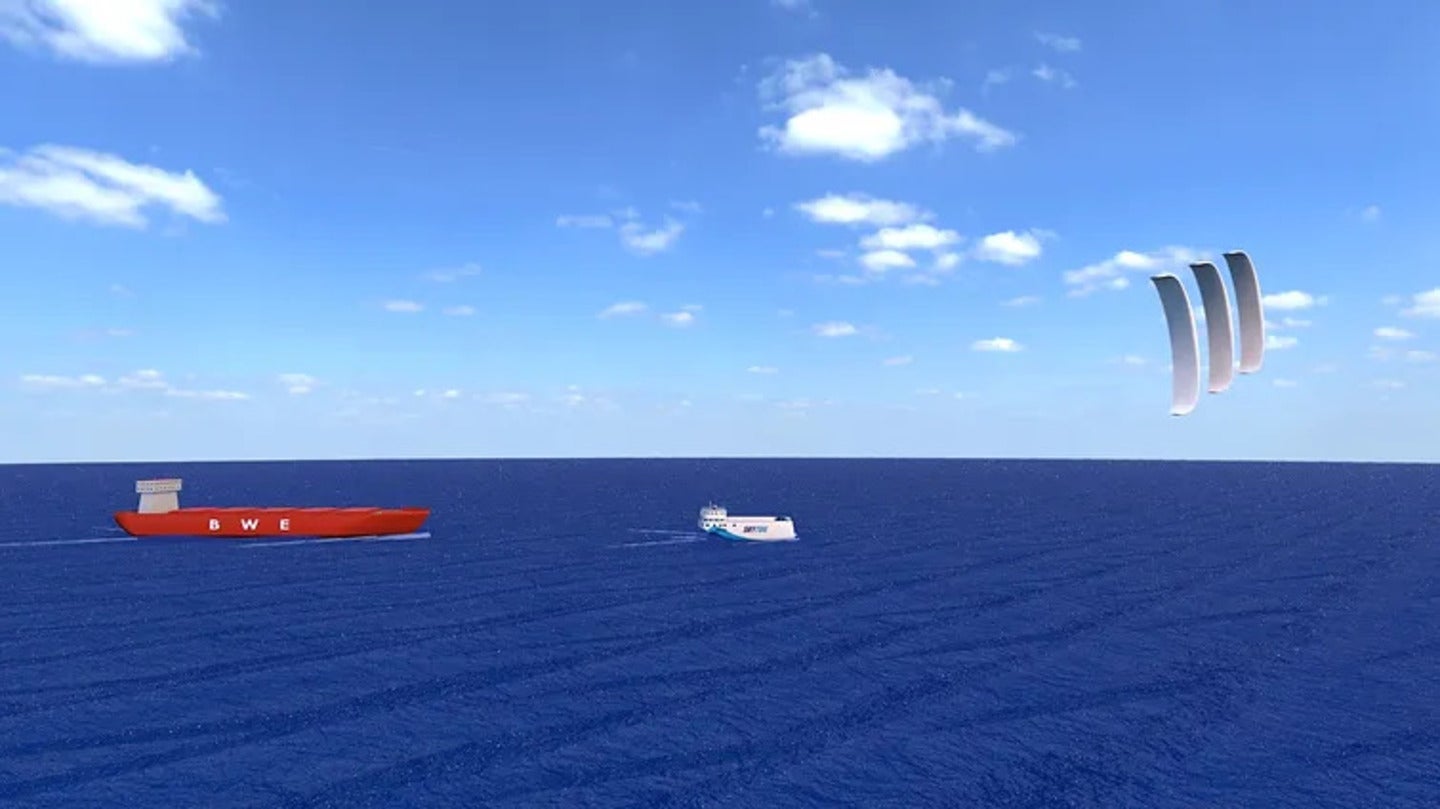
Skytug, an innovative tug system that uses large kites to tow ships, is one of the green transport technology projects to receive government funding through a research and innovation grant.
The Skytug system by Bluewater Engineering will receive a share of the £1.96m funding from the Transport Research and Innovation Grant (TRIG) supporting start-ups with solutions to some of the transport industry’s biggest problems.
Bluewater managing director James McGarley said: “We’re delighted to have been awarded TRIG funding and looking forward to achieving proof-of-concept of our patented kite handling system, which is central to Skytug’s technology.”
Skytug is a wind-propelled ocean tug that can provide the same power as a traditional craft for ship sizes from 35,000 to 200,000 deadweight tonnes.
Speaking on the importance of the TRIG scheme, Transport and Decarbonisation Minister Jesse Norman said: “The government wants the UK to be a world leader in the future of transport and, through the TRIG programme, the Department for Transport is supporting innovators and businesses to decarbonise and improve transport.”
The Skytug website says: “Freedom from spatial constraints gives Skytug the room to pack a powerful kite array, far beyond the limits of that which could be stowed aboard ship.
“This, coupled with patent-pending systems technology, is what enables it to provide full-speed propulsion for ships, using only the wind.”
Tug vessels have become a key point for innovative and sustainable tech in the shipping industry as it looks to achieve net zero emissions targets.
For example, Svitzer has recently launched a tug that will reduce nitrogen oxide emissions at the Port of Tyne. The port also won TRIG funding for heavy-duty robots that could replace HGVs, whilst Damen is working on a fleet of fully-electric compact tugs.
Other projects from across the transport world to have received TRIG funding include CC Informatics exploring the use of drones to create digital models of structures that can identify weak points and defects, as well as an Imperial College London project working on more permeable paving made from recycled materials.



